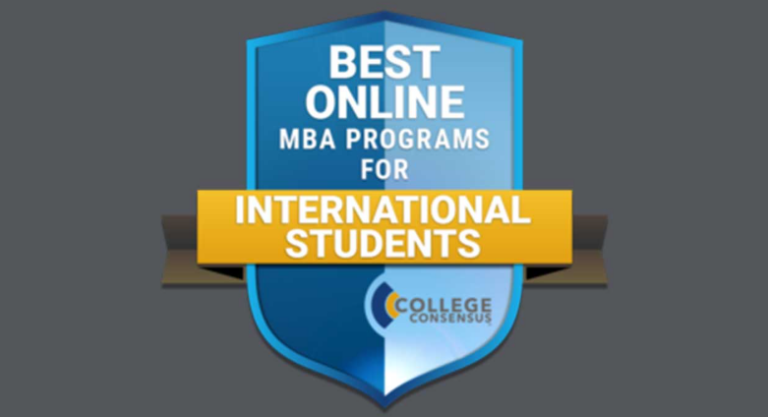MBA in sports management online programs offer a unique blend of business acumen and sports industry expertise, preparing graduates for diverse and exciting careers. This rapidly growing field demands professionals who understand both the financial intricacies and the passionate culture of sports, and an online MBA provides the flexibility to pursue this career path while maintaining existing commitments. We’ll explore the curriculum, career prospects, and financial considerations of this increasingly popular degree option.
This guide delves into the specifics of online MBA programs in sports management, comparing them to traditional programs, outlining potential career paths, and detailing the financial aspects and technological requirements. We aim to provide a comprehensive overview, equipping you with the information you need to make an informed decision about pursuing this exciting career opportunity.
Program Overview
An online MBA in Sports Management offers a flexible and convenient pathway to a career in the dynamic sports industry. These programs blend traditional business principles with a specialized focus on the unique challenges and opportunities within sports organizations, encompassing areas like marketing, finance, law, and operations. This overview will detail the typical curriculum, admission requirements, and learning experience, ultimately comparing several leading online programs.
Curriculum of an Online MBA in Sports Management
A typical online MBA in Sports Management curriculum covers a broad range of business disciplines, tailored to the sports industry. Core courses often include accounting, finance, marketing, and strategic management. Specialized courses delve into areas like sports marketing and sponsorship, sports law, facility management, and the economics of sports. Many programs also incorporate practical elements like case studies, simulations, and potentially internships or capstone projects focusing on real-world sports scenarios.
The specific course offerings vary across institutions, but the overall goal remains consistent: to equip graduates with the skills and knowledge needed to succeed in various roles within the sports industry.
Admission Requirements for Online MBA Programs in Sports Management
Admission requirements for online MBA programs specializing in sports management are generally similar to those of traditional MBA programs, although some programs may have specific prerequisites. Applicants usually need a bachelor’s degree from an accredited institution, a strong academic record (typically a GPA above 3.0), and a competitive GMAT or GRE score. Professional experience, particularly in the sports industry or related fields, is often highly valued and can strengthen an application.
Some programs may also require letters of recommendation, a statement of purpose outlining career goals, and a resume showcasing relevant skills and experience. The specific requirements vary depending on the institution and program.
Comparison of Online and On-Campus MBA in Sports Management
Online and on-campus MBA programs in sports management both offer a comprehensive education, but the learning experience differs significantly. On-campus programs provide direct interaction with professors and peers, fostering a collaborative learning environment. Networking opportunities are often more readily available in a traditional setting. Online programs, conversely, offer unparalleled flexibility and convenience, allowing students to learn at their own pace and from anywhere with an internet connection.
The online format typically involves asynchronous learning (accessing materials and completing assignments at any time) and synchronous sessions (live online classes). The choice between online and on-campus depends on individual learning styles, career goals, and personal circumstances. Both formats can lead to successful careers in sports management.
Comparison of Three Online MBA in Sports Management Programs
The following table compares three hypothetical online MBA programs in sports management. Note that these are examples, and actual program details may vary. It is crucial to check directly with each institution for the most up-to-date information.
| Program Name | Tuition Fees (USD) | Program Length (Years) | Specializations Offered |
|---|---|---|---|
| University A | $60,000 | 2 | Sports Marketing, Sports Finance, Sports Law |
| University B | $75,000 | 1.5 | Sports Analytics, Esports Management, International Sports Business |
| University C | $50,000 | 2.5 | College Athletics Administration, Sports Media & Communication, Sports Event Management |
Career Paths & Job Prospects

An online MBA in sports management opens doors to a diverse range of exciting careers within the dynamic sports industry. This degree equips graduates with the business acumen and sports-specific knowledge needed to thrive in competitive environments, offering both immediate employment opportunities and strong potential for long-term career growth. The blend of business strategy and sports expertise makes graduates highly sought-after by organizations of all sizes.This program prepares students for a variety of roles, spanning marketing, finance, operations, and more.
The skills developed—strategic thinking, financial analysis, marketing proficiency, and leadership—are highly transferable and valuable across the industry. Graduates are well-positioned to navigate the unique challenges and opportunities presented by the ever-evolving landscape of professional and amateur sports.
Specific Job Roles and Salary Expectations
The specific job roles accessible with an online MBA in sports management are numerous and varied. Salary ranges are influenced by factors like experience, location, and employer size. However, we can illustrate the potential with some examples. A Sports Marketing Manager, for instance, might earn between $60,000 and $120,000 annually, depending on their experience and the organization’s size and location.
This role requires strong marketing skills, including digital marketing expertise, brand management, and campaign development. Similarly, a Financial Analyst in a sports organization could earn between $55,000 and $100,000 annually, requiring a strong understanding of financial modeling, budgeting, and forecasting within the context of sports business. Finally, a Sports Operations Manager might see a salary range of $65,000 to $110,000, requiring exceptional organizational skills, problem-solving abilities, and the capacity to manage complex logistics.
Career Advancement Opportunities
Career advancement within the sports industry after completing an online MBA in sports management is readily achievable. Graduates often begin in entry-level or junior roles and progress to senior management positions over time. For example, a recent graduate might start as a marketing assistant and, with experience and further professional development, progress to a Marketing Manager, then a Senior Marketing Manager, and eventually a Director of Marketing.
Similarly, an entry-level financial analyst could progress to a senior analyst, then a manager, and ultimately a director of finance. The combination of practical experience and advanced business education gained through the MBA program provides a solid foundation for climbing the corporate ladder within sports organizations.
Industries Benefiting from Sports Management MBAs
The skills and knowledge gained from an online MBA in sports management are highly transferable and beneficial across a wide array of industries.
- Professional Sports Teams (NFL, NBA, MLB, NHL, etc.): These organizations constantly seek individuals with both business and sports expertise to manage various aspects of their operations.
- Collegiate Athletics Departments: Universities and colleges require skilled professionals to manage their athletic programs, including coaching staff, facilities, and finances.
- Sports Agencies: These agencies represent athletes and manage their careers, requiring individuals with strong business and negotiation skills.
- Sports Marketing and Media Companies: Companies involved in the marketing and media aspects of sports need professionals to manage sponsorships, advertising, and broadcasting.
- Sports Technology Companies: The growth of sports technology has created numerous opportunities for individuals with business and technical expertise.
- Event Management Companies: Companies specializing in organizing and managing sporting events benefit from professionals with strong operational skills.
Program Structure & Learning Methods: MBA In Sports Management Online
An online MBA in sports management typically follows a structured curriculum delivered asynchronously, allowing students flexibility to learn at their own pace. This contrasts with traditional, in-person programs, offering a more accessible and adaptable learning experience. The program blends theoretical knowledge with practical applications, preparing graduates for diverse roles within the sports industry.This program structure utilizes a modular approach, breaking down the MBA into manageable units focusing on specific areas of sports management.
Each module combines various learning activities to ensure a comprehensive understanding of the subject matter. The asynchronous nature means there are no fixed times for lectures or classes; instead, materials are accessible online whenever convenient for the student.
Course Delivery Methods and Assessment Types
The primary method of course delivery is through online learning platforms, offering access to lectures (often pre-recorded videos), readings, assignments, and interactive discussions. Assessment typically involves a combination of methods designed to evaluate different learning aspects. These include quizzes, individual assignments (such as essays or case study analyses), group projects requiring collaborative work, and final examinations. The weighting of each assessment type varies depending on the specific course and program structure.
For instance, a marketing module might emphasize case studies and presentations, while a finance module might focus more on quantitative assessments.
Technological Tools and Platforms
Successful online learning relies heavily on the technology used. A typical online MBA in sports management leverages a learning management system (LMS) like Canvas, Blackboard, or Moodle. These platforms serve as central hubs for course materials, communication tools, and assessment submissions. Students may also utilize collaboration tools like Microsoft Teams or Google Workspace for group projects and discussions.
Specialized software for data analysis or sports analytics might also be integrated depending on the specific curriculum. For example, a course on sports analytics might utilize statistical software like SPSS or R. The program will typically provide detailed instructions and support on how to use these various technologies effectively.
Learning Activities
The learning experience goes beyond simple lectures and readings. A range of engaging activities aims to enhance understanding and develop practical skills. Case studies, often involving real-world scenarios from the sports industry, encourage critical thinking and problem-solving. Simulations allow students to experience managing various aspects of a sports organization in a risk-free environment, learning from their decisions and mistakes.
Group projects foster collaboration and communication skills, essential for success in the sports industry’s team-oriented nature. Discussions and forums provide opportunities for peer interaction and knowledge sharing. For example, a group project might involve developing a marketing strategy for a fictional sports team, while a case study could focus on analyzing a recent crisis management situation in professional sports.
Sample Weekly Schedule
A typical week might look something like this, although the exact schedule will vary based on the individual course load and student preferences:
| Day | Activity | Time Commitment |
|---|---|---|
| Monday | Review module materials, complete assigned readings for Marketing module. | 2-3 hours |
| Tuesday | Participate in online discussion forum, work on group project (Finance module). | 2-3 hours |
| Wednesday | Complete a quiz (Sports Law module), begin working on individual case study. | 1-2 hours |
| Thursday | Attend virtual office hours with professor, continue working on case study. | 1-2 hours |
| Friday | Submit assignments, review notes for upcoming modules. | 1 hour |
| Weekend | Dedicate time to completing the case study and reviewing materials for the following week. | 4-6 hours |
Note: This is a sample schedule and the actual time commitment may vary depending on individual course demands and learning styles. Effective time management is crucial for success in an online program.
Cost & Financial Aid
Pursuing an online MBA in sports management is a significant investment, but the potential return on that investment—a fulfilling career in a dynamic industry—can be substantial. Understanding the costs involved and the available financial aid options is crucial for making an informed decision. This section provides a clear overview of the financial aspects of this program.Tuition, fees, and the cost of learning materials constitute the primary expenses.
While specific costs vary between institutions, a realistic budget should encompass these elements.
Tuition Costs
Tuition for online MBA programs in sports management can range significantly depending on the institution’s reputation, location, and program length. Expect to pay anywhere from $10,000 to $70,000 or more for the entire program. Some universities offer a per-credit-hour cost, while others charge a flat tuition rate. It’s advisable to contact the admissions office of your chosen program to obtain precise figures.
For example, a program might cost $1,000 per credit hour for a 36-credit-hour program, totaling $36,000. Another might offer a fixed price of $45,000 for the same number of credits. These variations highlight the importance of comparing programs carefully.
Fees and Materials
Beyond tuition, anticipate additional fees. These might include technology fees (for access to online learning platforms), application fees, and graduation fees. The cost of required textbooks and other learning materials should also be factored into your budget. These costs can range from a few hundred dollars to over a thousand, depending on the program’s requirements.
Financial Aid Options
Several financial aid options can help offset the cost of your education. These include scholarships, grants, and loans.
Scholarships, MBA in sports management online
Many organizations and institutions offer scholarships specifically for students pursuing graduate degrees in sports management or related fields. These scholarships are often merit-based, awarded based on academic performance, athletic achievements, or demonstrated leadership qualities. Some are need-based, considering financial circumstances. Prospective students should research scholarships offered by their chosen university, professional sports organizations, and private foundations.
Grants
Grants, unlike loans, don’t need to be repaid. Federal and state governments, as well as private organizations, offer grants to students pursuing higher education. Eligibility criteria vary, often based on financial need or specific academic goals. The Free Application for Federal Student Aid (FAFSA) is a crucial resource for exploring federal grant opportunities.
Loans
Federal student loans and private student loans are additional options. Federal loans typically offer lower interest rates and more flexible repayment plans than private loans. However, it’s essential to understand the terms and conditions of any loan before accepting it, as accumulating significant student loan debt can impact your financial future.
Cost Comparison: Online vs. Traditional MBA
Generally, online MBA programs in sports management tend to be more affordable than their traditional counterparts. This is primarily due to reduced overhead costs for the institution, such as facilities maintenance and administrative staff. However, this isn’t always the case, and a thorough comparison of individual program costs is necessary. The cost savings from an online program can be substantial, allowing students to potentially minimize the overall financial burden of their education.
Resources for Finding Financial Aid
Finding financial aid can seem daunting, but several resources can assist you in your search.
- The Free Application for Federal Student Aid (FAFSA): This is the primary application for federal student aid, including grants and loans.
- Your Chosen University’s Financial Aid Office: The financial aid office at your chosen university can provide information on institutional scholarships, grants, and loan options.
- Professional Sports Organizations: Many professional sports organizations offer scholarships or grants to students interested in sports management careers.
- Private Scholarship Databases: Several online databases, such as Fastweb and Scholarships.com, list numerous scholarships from various sources.
Networking & Professional Development
An online MBA in sports management offers unique networking and professional development opportunities, often leveraging technology to connect students with industry professionals and alumni. These programs understand that building strong professional relationships is crucial for success in a competitive field like sports management, and they actively facilitate this process. Beyond classroom learning, the focus is on equipping graduates with the skills and connections necessary to thrive in their chosen careers.Successful careers in sports management hinge on strong networks.
The ability to collaborate, leverage connections, and access information are key competitive advantages. Online programs recognize this and incorporate strategies to help students cultivate robust professional networks throughout their studies and beyond.
Online Networking Platforms and Professional Organizations
Many online MBA programs in sports management utilize dedicated online platforms to connect students with each other and with alumni. These platforms often include features such as forums, discussion boards, and mentorship programs. These facilitate peer-to-peer learning and provide opportunities to build relationships with individuals already working in the field. Furthermore, the programs often partner with or encourage membership in relevant professional organizations.For example, a program might feature access to online forums where students can discuss current industry trends, share job postings, and engage in collaborative projects.
Similarly, the curriculum might encourage or even require participation in organizations like the National Association of Collegiate Directors of Athletics (NACDA) or the Sports Business Association of America (SBAA), providing students with access to a broader professional network. These organizations frequently host online events, webinars, and networking opportunities, enriching the learning experience beyond the classroom.
Mentorship and Career Advancement
Beyond online platforms, many programs offer formal mentorship opportunities, pairing students with experienced professionals in the sports industry. These mentors provide valuable guidance, advice, and support, helping students navigate their career paths and gain insights into specific areas of interest. This personalized approach can be invaluable, offering students direct access to industry leaders and a chance to learn from their experiences.
Mentorship programs often extend beyond the completion of the program, fostering long-term relationships that can prove beneficial throughout a student’s career. For instance, a mentor might provide career counseling, job search assistance, or introduce the mentee to potential employers within their network.
The Importance of Networking in the Sports Industry
The sports industry is highly competitive and relationship-driven. A strong professional network can significantly increase job prospects and career advancement opportunities. Networking allows access to unadvertised job openings, provides insights into industry trends, and fosters collaboration opportunities. It also enhances professional credibility and opens doors to mentorship and sponsorship. For instance, a student who has developed a strong network during their MBA program might be offered an internship or entry-level position through a connection made within their cohort or through a professional organization.
Similarly, a strong network can lead to career advancement opportunities, as individuals with strong connections are often better positioned for promotions and new roles.
Accreditation and Program Quality
Choosing an online MBA in sports management requires careful consideration of the program’s quality and accreditation. A reputable program will offer a rigorous curriculum, experienced faculty, and career support, ultimately leading to a degree that holds significant value in the job market. Understanding accreditation and its implications is crucial in making an informed decision.Accreditation signifies that a program meets specific quality standards set by independent organizations.
It’s not just a stamp of approval; it’s an assurance that the education you receive is credible, rigorous, and will be recognized by potential employers. An accredited program typically undergoes a thorough review process, evaluating factors such as curriculum design, faculty qualifications, student support services, and overall program effectiveness. This process ensures that the program maintains a high level of academic excellence and prepares graduates for successful careers.
Reputable Accrediting Bodies
Several organizations accredit business and sports management programs. Choosing a program accredited by a recognized body provides a strong indicator of quality. These bodies often have specific criteria for accreditation, ensuring a certain level of academic rigor and program effectiveness. Some examples include the Association to Advance Collegiate Schools of Business (AACSB International), which is a widely recognized accrediting body for business programs globally, and specialized accreditors focusing on specific aspects of sports management, though these are less common than general business accreditation.
The importance of researching the specific accrediting body and its standards cannot be overstated. A program accredited by a less-known or less-respected body may not hold the same weight in the job market.
Researching Accreditation Status
To determine the accreditation status of a specific online MBA program, start by visiting the program’s website. Look for information about accreditation on the “About Us” or “Accreditation” page. The program should clearly state which accrediting bodies have granted them accreditation. If the information is not readily available, contact the program directly and inquire about their accreditation status.
You can also verify the accreditation by visiting the website of the accrediting body itself. Most accrediting bodies maintain a searchable database of accredited institutions. By entering the name of the program or university, you can confirm its accreditation status and the accreditation’s validity. Cross-referencing information from multiple sources ensures a comprehensive understanding of the program’s accreditation.
Technological Requirements & Support

Successfully navigating our online MBA in Sports Management program requires a reliable technological setup and a proactive approach to troubleshooting. This section Artikels the necessary equipment, support services available, and best practices for optimizing your online learning experience. We understand that technology can sometimes be a hurdle, so we’ve designed our support systems to help you overcome any challenges.This program demands a certain level of technological proficiency to ensure seamless participation in online classes, discussions, and assignments.
Consistent access to reliable internet and compatible devices is crucial for a positive learning experience. Furthermore, understanding the available support channels can significantly reduce stress and maximize your learning potential.
System Requirements
Our program requires a minimum level of technological capability to ensure all students can fully participate. Students will need a computer (laptop or desktop) with a reliable internet connection. Specific software requirements, such as a compatible web browser (Chrome, Firefox, Safari, Edge), and potentially specific applications, will be communicated during the enrollment process. A high-speed internet connection (broadband or fiber optic) is strongly recommended to ensure smooth streaming of video lectures and timely upload/download of assignments.
Sufficient RAM and processing power are also important for optimal performance. Failure to meet these requirements may impact your ability to fully participate in the program.
Technical Support Services
Our dedicated technical support team is available to assist students with any technological issues they may encounter. Support is provided through various channels, including email, phone, and a comprehensive online help center featuring FAQs and troubleshooting guides. The help center is regularly updated to reflect any changes in the program’s technological requirements or to address commonly reported issues.
The technical support team is trained to provide prompt and effective assistance, ensuring minimal disruption to your studies. They are available during regular business hours, with additional support offered during peak periods such as exam times.
Maintaining a Productive Online Learning Environment
Creating a productive online learning environment involves more than just having the right technology. A dedicated workspace, free from distractions, is crucial. This means designating a specific area in your home solely for studying. Furthermore, establishing a consistent study schedule and utilizing time management techniques, such as the Pomodoro Technique, can significantly improve focus and productivity. Regular breaks are also essential to prevent burnout and maintain concentration.
Finally, actively participating in online discussions and seeking help when needed fosters a more engaging and supportive learning experience. Remember to regularly update your software and hardware to prevent compatibility issues.
Essential Technological Resources Checklist
Before beginning your studies, ensure you have the following:
- A reliable computer (laptop or desktop) with sufficient processing power and RAM.
- A high-speed internet connection (broadband or fiber optic recommended).
- A compatible web browser (Chrome, Firefox, Safari, Edge).
- A reliable headset with a microphone for online classes and discussions.
- Sufficient storage space for downloading course materials and submitting assignments.
- A dedicated workspace free from distractions.
- A calendar or planner to manage your study schedule.
Closure

Ultimately, an online MBA in sports management presents a compelling pathway for individuals passionate about the sports industry and seeking a rewarding career. The flexibility of online learning, coupled with the specialized knowledge gained, positions graduates for success in a dynamic and competitive field. By carefully considering program structure, cost, and career goals, aspiring sports management professionals can leverage this degree to achieve their ambitions.
FAQ Guide
What are the typical job titles for graduates?
Graduates often find roles as Sports Marketing Managers, Event Coordinators, Sports Agents, Financial Analysts in Sports Organizations, or even General Managers in sports teams.
Are there any prerequisites for admission?
Generally, a bachelor’s degree is required. Specific requirements vary by program, but often include GMAT or GRE scores and relevant work experience is often beneficial.
How long does it typically take to complete the program?
Most online MBA programs in sports management take between 18 and 24 months to complete, depending on the program’s structure and the student’s pace.
What kind of technological support is available?
Most programs offer robust technical support, including help desks, online tutorials, and access to IT professionals to assist with any technical issues encountered during the course of the program.
Are there networking opportunities in online programs?
Yes, many online programs actively facilitate networking through online forums, virtual events, and alumni networks, providing valuable connections within the sports industry.





